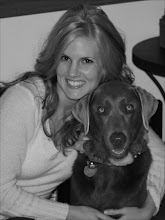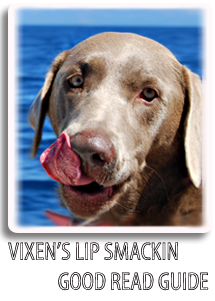With all of the SoCal rainy weather we have been getting in the last few weeks, our Polka Dot Pup crew was inspired to hit the road and head to the snow.
For our main mascot Vixen, this was her first ever trip. Although she has an obsession with water (being a Lab and all), we weren't exactly sure how she would react to this white fluffy stuff. We should have known! As soon as that pup step outside, she was in snow dog heaven. She couldn't get enough of that white powder and spent hours romping around and hunting for animals in the brush.




The snow is definitely a great place to spend some owner-pup bonding time this winter but remember to stay safe, the cold weather can take a toll on your furry friends. Check out some great Cold Weather Tips from Kennel and Dog Magazine -
Heating Up Chilly Dogs
Cold Weather Tips to Keep Pets Warm
By Bernadine Cruz, DVM
Provided by Pfizer
Do provide proper shelter:
Do provide indoor dogs with a warm sleeping area away from drafts.
Do use caution around bodies of water. Keep pets away from rivers, ponds and lakes as they begin to freeze. Continue to use caution even when the water appears completely frozen.
Do keep hair around paw pads trimmed. Less hair will help keep paws free of ice and snow, which can quickly ball up between footpads and create uncomfortable walking conditions for pets.
Do check paw pads for small cuts and cracks. Consider dog boots for dogs that react negatively to walking on ice and snow - especially dogs that react to snow removal products.
Do clean your dog's paws after walks to remove salt and snow removal chemicals, which can be toxic to pets.
Do check your dog's ears, tail and feet for frostbite. Just as dogs are sensitive to hot summer sidewalks, cold winter walkways may cause pain or contribute to frostbite. A dog that continually lifts individual legs off the ground during a winter walk may feel the effects of frostbite. Frostbitten skin may appear red or gray. If you suspect frostbite, wrap your dog's feet in a blanket or towels to gradually warm them and contact your veterinarian.
Do provide the proper type and amount of food for the season. Dogs housed outdoors and dogs that participate in strenuous outdoor activities may require additional food during colder weather. On the other hand, indoor dogs that exercise less frequently in colder months may need less food.
Do provide adequate fresh, unfrozen water. If your dog lives outside, consider investing in a heated water bowl. Indoor dogs also may require more water to combat dry winter air.
Do invest in a pet sweater for shorthaired breeds. Watch for telltale signs that your pet is cold. Like us, pets will shiver in response to being chilled.
Do keep puppies and older dogs indoors except for short periods of time. As with humans, young and old dogs are more susceptible to the effects of the cold.
Do keep dogs on a leash - especially during bad weather or snowstorms when they can lose their ability to find their way by smell.
Do pay attention to snow removal. Avoid piling snow near fences and creating an escape route for curious pets.
Do keep identification tags updated in the event your dog runs away.
Do clean up antifreeze spills immediately. Many dogs like the sweet smell and taste and, unfortunately, even very small amounts can be lethal to them. If you suspect that your dog has ingested antifreeze, take your dog to your veterinarian immediately. There may be time for Antizol-Vet, an anti-freeze antidote, to help your dog. Also consider using an animal-friendly anti-freeze.
Do maintain your pet's grooming schedule. Regular brushing keeps your dog's coat supple and prepared for the cold. However, when you bathe your pet, be sure to dry his coat thoroughly before allowing him outside.
Do visit your veterinarian for a checkup before the cold weather strikes. Cold weather may exacerbate certain conditions, such as arthritis. Sudden changes in the weather or drops in temperature may affect pets suffering from osteoarthritis.
Don't suddenly house an indoor dog outdoors. Dogs require a month or more (as seasons change) to become accustomed to lower winter temperatures.
Don't keep your dog outside in all conditions. Pay attention to the thermometer. If it dips too far below freezing, it's too cold for any dog - even those accustomed to being outside.
Don't treat all dogs alike. While some breeds such as Alaskan malamutes or huskies may be able to spend long periods out of doors in cold weather, other breeds such as greyhounds or Dobermans to not have the same protective fur.
Don't leave pets alone in cars during cold weather months. When the engine is off, a car can act as a refrigerator, holding in the cold.
For more pets tips, check out DogandKennel.com
Do you have a pup that loves the snow? We want to hear about it! Send your snow dog story along with an attached image to www.polkadotpupblog@aol.com and it may be featured in our "Snow Dogs" series.















